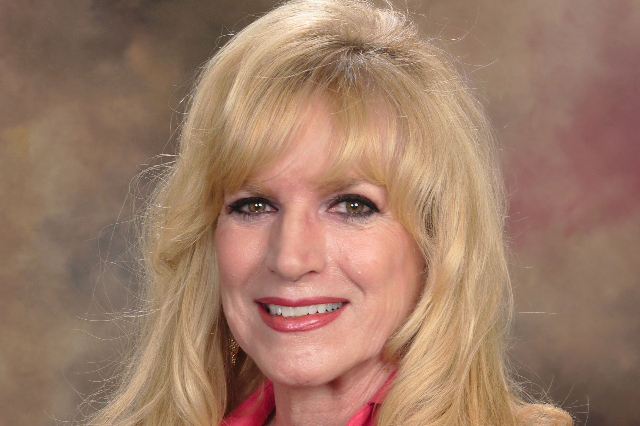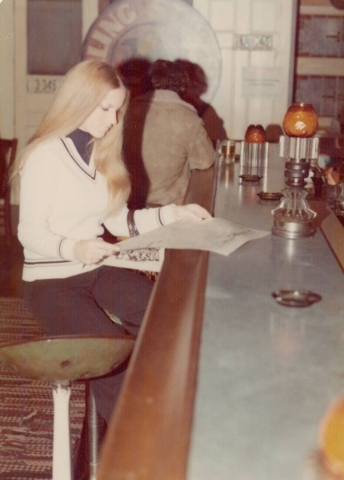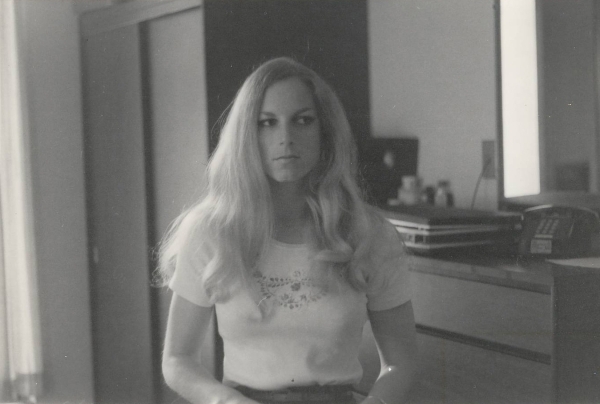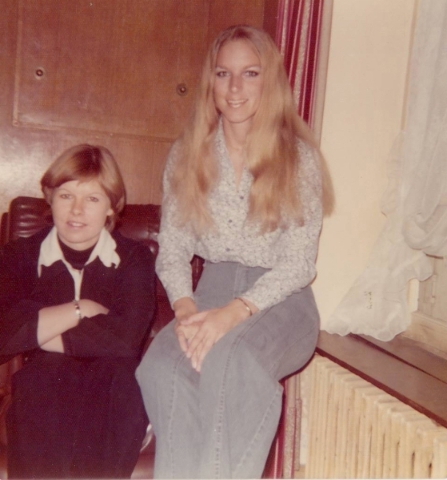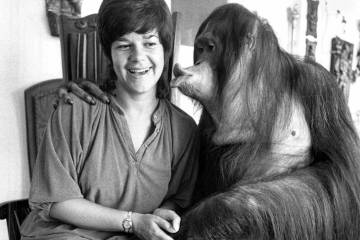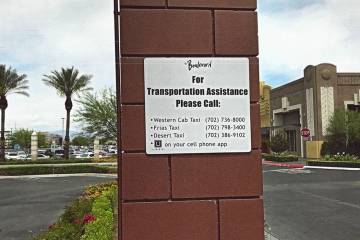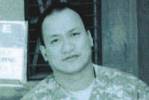Las Vegas’ first female FBI agent was master of disguise
Tall and slim, with long, blond hair, Deborah Richard could look like an expensive call girl or a bag lady. She could wear an auburn wig and heavy makeup and look like a hooker. She could be the perfect ditz or the perfect waitress.
But it was quick thinking that made Las Vegas' first female FBI agent an undercover success. She started undercover work through assignments at the Huntington Beach Police Department, her first law enforcement job. Once she posed as a model and would-be hooker and convinced a man the wire he felt was a pacemaker. She was in her early 20s at the time.
After the FBI recruited her, Richard came to Las Vegas in 1977 and for two years worked undercover doing surveillance and gathering intelligence in the bureau's intense effort to indict Tony Spilotro, the Chicago mob's watchdog in Las Vegas. She was 27 but looked younger.
"A lot of my work was being a fly on the wall," she said.
She will be on the Mob Museum's Nov. 7 panel discussing what was real in the movie "Casino" about Spilotro, mob associate Frank "Lefty" Rosenthal and Rosenthal's wife (and Spilotro's lover), Geri.
Richard, who has retired to Las Vegas, shocked me Sunday when she said Geri had also been a source for the FBI, which is not the same as a top echelon informant like Rosenthal and didn't require a paper trail.
Richard knew this because she worked with the late FBI agent Al Zimmerman, who worked with both Rosenthals. Richard said sometimes Zimmerman met with both Rosenthals the same night, without each other's knowledge.
While preparing for the museum panel, which includes former Mayor Oscar Goodman, she told him Geri was a source for the FBI. He was stunned, she said.
"Both of them?" he blurted out.
As the attorney for both Rosenthal and Spilotro, Goodman always denied Rosenthal was an informant, even after I confirmed it with multiple law enforcement sources following Rosenthal's death in 2008. The mob lawyer always boasted proudly he never represented a snitch.
Richard didn't know what kind of information Rosenthal provided because she didn't have any reason to go to the informant file and Zimmerman didn't say.
By the FBI's definition and during the time period Richard was undercover, the Top Echelon Criminal Informant Program established in 1961, was to "develop particularly qualified, live sources within the upper echelon of the organized hoodlum element who will be capable of furnishing the quality information" needed to attack organized crime.
Calling the Rosenthal's marriage tumultuous is an understatement, as the movie showed quite well. "I'm pretty sure she cried on his (Zimmerman's) shoulder," Richard said. Geri also provided information about her husband's activities.
Rosenthal was secretly running the Stardust and the skimming operation while supposedly holding midlevel jobs there. Holding titles like entertainment director and food and beverage director, he was controlling Argent Corp. resorts — owned by San Diego businessman Allen Glick — the Stardust, the Fremont, the Hacienda and the Marina. The money skimmed traveled back to mob families in the Midwest.
Other members of the panel, besides Richard and Goodman, will be former FBI agent Marc Kasper, retired television reporter Gwen Castaldi and former state gaming regulator Jeff Silver. Tickets for "The Real Story Behind 'Casino' " are $25 for the public.
As the three key players are dead, it should be intriguing to see how much more is divulged that evening.
"I don't think I'm going to be divulging any secrets (about investigative techniques) they haven't seen on TV," Richard laughed.
One example of her quick thinking involved seeking Spilotro out at the Las Vegas Country Club with its tight security. She dressed in a cute tennis outfit and told the guard she was playing tennis with a member as her ruse to get into the property. Inside the country club, she told the hostess she was meeting someone and might want to join as an associate member.
"She was more than happy to show me around and then let me wander about to check everything out," Richard recalled. "It worked. I had the run of the place and was able to observe our target and his friends for a little while."
Richard would go to restaurants to watch Spilotro and Rosenthal. "The bureau wouldn't pay for me to have dinner, it's too expensive," she said over sliders at the Chicago Brewery.
Part of her observations were used to obtain wiretaps in the Spilotro investigation. She also was among the agents who listened to those wiretaps and monitored minimization. Agents were supposed to turn off the tape if mobsters were talking noncriminal activities or something involving attorney-client privilege.
During the federal wiretap suppression hearings, Goodman attacked her on the stand about minimization, trying to make it seem Spilotro was a victim of wrongdoing by the FBI.
The wiretaps held up and were admitted in the trial, which ended with a mistrial. Spilotro and his brother were murdered in 1986 and buried in an Indiana cornfield before the next trial.
Richard described Spilotro as "volatile. I never saw a guy with as quick a temper." The FBI suspected he killed at least 22 people, but he was never convicted of any murder.
Spilotro was known as "Tony the Ant" because he was about 5 feet 2 inches tall. Richard was 4 inches taller and a knockout. Although his wife, Nancy, was petite and shorter than he was, in his extracurricular activities, he liked tall showgirls, according to Richard.
"I'd follow him into casinos, see who he was meeting with, watch the relationship he had with Rosenthal. I couldn't get close enough to hear what they were saying. I had to keep a distance, I was too afraid he (Spilotro) would hit on me. I wouldn't take a hit for the team," she said.
Plus, she has a distinctive voice, a combination of California and New England. She could change her looks, she said. "You can't change your voice."
In 1979, she transferred to Boston to work undercover in organized crime cases.
Some of her efforts are detailed in the book "The Underboss" about how the FBI obtained wiretap information and convicted members of a Mafia family in Boston headed by Gennaro Angiulo. Wiretaps there included discussions of crimes committed by James "Whitey" Bulger, the subject of the new movie "Black Mass" and another top echelon informant.
More about her thoughts on "Casino" and "Black Mass" and the next five years of her undercover work in New England in next Thursday's column.
Jane Ann Morrison's column runs Thursdays. Leave messages for her at 702-383-0275 or email jmorrison@reviewjournal.com. Find her on Twitter: @janeannmorrison



